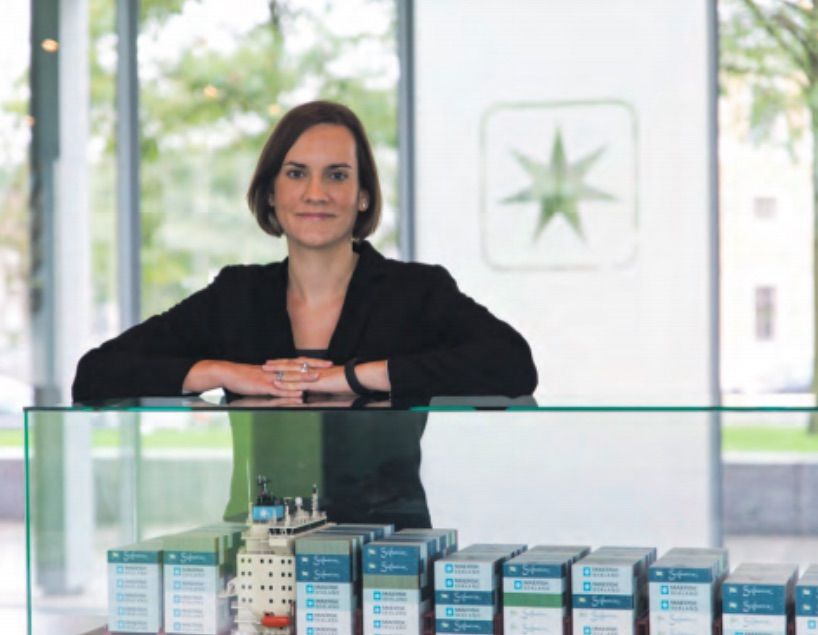How long have you worked for Mærsk?
I joined Maersk in March 2002 in the US and spent the first 12 years working in various operations roles based in Charlotte, North Carolina. I moved to my new role in Copenhagen at the end of March 2014. My husband (Shane) also works for Mærsk Line so it worked out great to have us both move here at the same time!
Describe your job and what it involves
I am working as a transformation partner for a project related to our global operations teams. I have spent my entire career at Maersk working in operations roles and am now working on a project focusing on how we can standardise and eliminate waste in our operations processes. Our ambition is to have the best operations execution and liner machine in the world, offering reliable services to our customers. This has been quite a change for me as I am used to many things coming at me (a day in the life of working in operations!) and the project role is much more about defining the future of operation execution. I essentially started with a blank piece of paper and must define the path forward. I must say I am learning a lot!
What do you like most about working for Mærsk?
I didn’t grow up aspiring to work in the transportation industry and found myself working at Maersk by chance. The fact that I have had the opportunity to see so much of the world, work with some amazing colleagues and be a part of this successful company makes me proud every day.
Are there any unexpected perks?
One of the ways that Maersk has simplified my life is through the canteen at Esplanaden. Having healthy choices for breakfast and lunch in the canteen and fresh fruit for afternoon snack makes it very easy! If you are working late in the office, sandwiches are also provided.
Where else have you worked (countries or companies) and how does this compare?
I have always lived and worked in the United States and this is my first opportunity to live overseas. In comparison to the more regimented work environment in the US, working in Denmark may seem more relaxed to the naked eye. What I have come to notice is that despite a more flexible work life (ability to leave early or work from home when need be) there is an overwhelming commitment to meeting deadlines and really working smarter to ensure goals are met. In the US you are expected to be at work from 8-5, Monday through Friday with little room to adapt to life’s ‘curve balls’.
What’s the best thing about working in Denmark?
I am married with two boys (Cinjun Thomas, aged eight, and Kieran Gabriel, aged five) and I really appreciate the ‘family first’ culture. The boys attend Copenhagen International School (CIS) in Hellerup and it has been a great experience for us all. They are not only exposed to Danish culture but meeting kids from all over the world, opening their eyes to many new people and experiences.
What’s something about Denmark that would surprise someone who hasn’t worked here?
As a working mother in the US, balancing it all can sometimes be a bit tricky. When we had the opportunity to move to Denmark, my expectations were that being a working mother would be easier here since dual working parents were much more common. When we started the boys in school, I was bombarded by requests for coffee dates, lunches and yoga classes and had to turn down almost every engagement I was invited to. As a part of the international community, there is almost always a ‘trailing spouse’ that does not work and has the flexibility to do many things during normal working hours. Finding summer camps that were English speaking for many weeks over the summer was quite stressful too! My expectations were not aligning with my experience and this really surprised me the most! Luckily, I have had the support of the company to have flexible hours, work from home and take time off as needed to join the kids’ most important activities.














